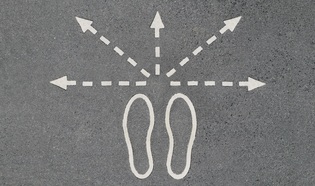|
|
PART 1 - MANAGING ANXIETY
PART 3 - MANAGING RELATIONSHIP WITH DENTIST
PART 4 - ACCESSING THE DENTIST
PART 3 - MANAGING RELATIONSHIP WITH DENTIST
PART 4 - ACCESSING THE DENTIST
Welcome to part 2 of this overcoming barriers to dentistry section, here we will discuss the different factors regarding cost and fees for dental treatment and how you can manage these or be helped to manage these in order to make sure you can attend the dentist and have the treatment you want or need.
We will not go into how best to overcome other social factors such as working hours, picking up and dropping off children etc as this will be covered in part 4
We will not go into how best to overcome other social factors such as working hours, picking up and dropping off children etc as this will be covered in part 4
|
1. NHS (health service) fees for dental check up, scale and polish, x rays or for other NHS work
2. Private fees for dental check up, cleaning and x rays 3. Private fees for work £0-1000 4. private fees for cosmetic work over £1000 often case for more than one crown, implants, orthodontics 5. Childrens dentistry fees |
NHS dental charges
The Health Service in the UK, despite its many shortcomings is still operating on a very large scale in UK dentistry and although more and more patients are turning to private dentistry a huge proportion still are seen on the health service.
Fees in the UK (minus Northern Ireland) are currently £22.70, £62.10 or £269.30 depending on the treatment you are having done on the NHS, the maximum fee per treatment plan is £269.30. In Northern Ireland and Scotland you pay for each individual treatment and so it gets a bit more complicated but as a general figure you will pay about £25 for a check up, clean and x rays, £10-£40 for a filling, £50-110 for a root treatment and about £120 for a crown/veneer, with a maximum payment of around £380 per treatment plan.
Fees in the UK (minus Northern Ireland) are currently £22.70, £62.10 or £269.30 depending on the treatment you are having done on the NHS, the maximum fee per treatment plan is £269.30. In Northern Ireland and Scotland you pay for each individual treatment and so it gets a bit more complicated but as a general figure you will pay about £25 for a check up, clean and x rays, £10-£40 for a filling, £50-110 for a root treatment and about £120 for a crown/veneer, with a maximum payment of around £380 per treatment plan.

Or if you or your partner receive any of the following
Or
- Income Support
- Income-related Employment and Support Allowance
- Income-based Jobseeker’s Allowance
- Pension Credit guarantee credit
- Universal Credit
Or
- you are named on a valid NHS tax credit exemption certificate or you are entitled to an NHS tax credit exemption certificate
- you are named on a valid HC2 certificate

A number of patients are exempt from NHS fees meaning they pay no fees at all.....These at present are:
- those aged under 18
- those aged under 19 and receiving full-time education
- pregnant women or those who have had a baby in the previous 12 months
- if you are staying in an NHS hospital and your treatment is carried out by the hospital dentist
- an NHS hospital dental service outpatient (however, you may have to pay for your dentures or bridges).
Partial Help with dental costs
If your name is on a valid HC3 certificate, you may not have to pay for all your treatment. Checks are made on free and reduced cost treatment claims. If you say you have the right to free treatment when you do not, you may incur a penalty charge.
Medical conditions do not exempt patients from payment for dental treatment.
If your name is on a valid HC3 certificate, you may not have to pay for all your treatment. Checks are made on free and reduced cost treatment claims. If you say you have the right to free treatment when you do not, you may incur a penalty charge.
Medical conditions do not exempt patients from payment for dental treatment.
Children's Dentistry
All children are entitled to free dentistry on the NHS, if you have trouble finding or getting to an NHS dentist then private practices will often see children but usually will have the following restrictions to access, this varies between practices
1. Parents are private patients at practice then children will be seen on the health service
2. Parents are private patients, children will be seen privately for a nominal fee
3. Dental plan - children's rates which will often be as little as £5 a month and if applying as a family may in fact find that children can be added to the plan at no or very little additional charge.
All children are entitled to free dentistry on the NHS, if you have trouble finding or getting to an NHS dentist then private practices will often see children but usually will have the following restrictions to access, this varies between practices
1. Parents are private patients at practice then children will be seen on the health service
2. Parents are private patients, children will be seen privately for a nominal fee
3. Dental plan - children's rates which will often be as little as £5 a month and if applying as a family may in fact find that children can be added to the plan at no or very little additional charge.
Private Dental Fees

Here are your options:
1. Pay fees outright - a number of people may be able to pay their private dental fees outright, this will usually be for smaller amounts such as for dental check ups, single or multiple fillings, tooth whitening and other treatments.
2. Dental Plan - this is where patients pay monthly via a company e.g Bupa, denplan, quality plan, practice plan which is usually set up through the practice and covers the cost of their dental check ups, hygiene appointments, emergency appointments as well as often giving them dental cover at home and abroad which can be very useful. You will quite often receive discount on treatments at your practice as well if you are on their dental plan, some dental plans cover all your treatment but will often cost around £30 or more per month.
3. Dentists Who Finance - this is where you apply for finance through the dental practice which can often be interest free, in order to pay for a treatment plan that may costs anything from a few hundred to £20,000 or more. This will be interest free in some places and have a low rate of interest in others. You will have to be approved for this finance as you would for any other loan but it is a useful and common option allowing patients to pay for £5000 worth of dental treatment say for as little as £150 per month making multiple dental implants available and affordable to almost everyone that wants them
4. Pay during treatment - this is where you might pay in 2 or 3 instalments directly to the practice without having to apply for finance, this is often possible where treatment occurs in stages e.g. implants, orthodontics; and you pay for each part as you have it done and is often used by patients who have been unsuccessful in their finance application. Some practices may or may not offer this.
1. Pay fees outright - a number of people may be able to pay their private dental fees outright, this will usually be for smaller amounts such as for dental check ups, single or multiple fillings, tooth whitening and other treatments.
2. Dental Plan - this is where patients pay monthly via a company e.g Bupa, denplan, quality plan, practice plan which is usually set up through the practice and covers the cost of their dental check ups, hygiene appointments, emergency appointments as well as often giving them dental cover at home and abroad which can be very useful. You will quite often receive discount on treatments at your practice as well if you are on their dental plan, some dental plans cover all your treatment but will often cost around £30 or more per month.
3. Dentists Who Finance - this is where you apply for finance through the dental practice which can often be interest free, in order to pay for a treatment plan that may costs anything from a few hundred to £20,000 or more. This will be interest free in some places and have a low rate of interest in others. You will have to be approved for this finance as you would for any other loan but it is a useful and common option allowing patients to pay for £5000 worth of dental treatment say for as little as £150 per month making multiple dental implants available and affordable to almost everyone that wants them
4. Pay during treatment - this is where you might pay in 2 or 3 instalments directly to the practice without having to apply for finance, this is often possible where treatment occurs in stages e.g. implants, orthodontics; and you pay for each part as you have it done and is often used by patients who have been unsuccessful in their finance application. Some practices may or may not offer this.

So - First decide whether you want to go NHS or PRIVATE
1. If you decide NHS and are entitled to free dental treatment on the health service, find an NHS dentist here
2. If you are not entitled to free dental treatment on the health service but still want to be a health service patient then still find an NHS dentist here
3. REMEMBER you always have a choice, even if you are a registered NHS patient you can still choose private treatment over the NHS option if you want say white fillings instead of silver or white crowns instead of gold coloured crowns but at an additional private fee
4. If you cannot find or access an NHS dentist or want to see a private dentist; then call a private practice in your area and ask about their monthly practice plan and finance options.
5. You will then see them for an initial appointment with a set notified fee (usually £25-£150)
6. From here you can decide to pay for all treatments outright; join a dental plan or apply for finance for more costly treatment plans
1. If you decide NHS and are entitled to free dental treatment on the health service, find an NHS dentist here
2. If you are not entitled to free dental treatment on the health service but still want to be a health service patient then still find an NHS dentist here
3. REMEMBER you always have a choice, even if you are a registered NHS patient you can still choose private treatment over the NHS option if you want say white fillings instead of silver or white crowns instead of gold coloured crowns but at an additional private fee
4. If you cannot find or access an NHS dentist or want to see a private dentist; then call a private practice in your area and ask about their monthly practice plan and finance options.
5. You will then see them for an initial appointment with a set notified fee (usually £25-£150)
6. From here you can decide to pay for all treatments outright; join a dental plan or apply for finance for more costly treatment plans
Either way there are options to make NHS and Private dental treatment costs manageable for everyone! So what are you waiting for, contact your dentist and get your dental check up made!!!
Next week - Part 3 - Relationship with your dentist or dental practice as a barrier to accessing dental care

 RSS Feed
RSS Feed